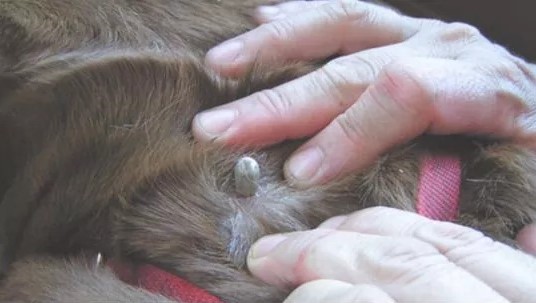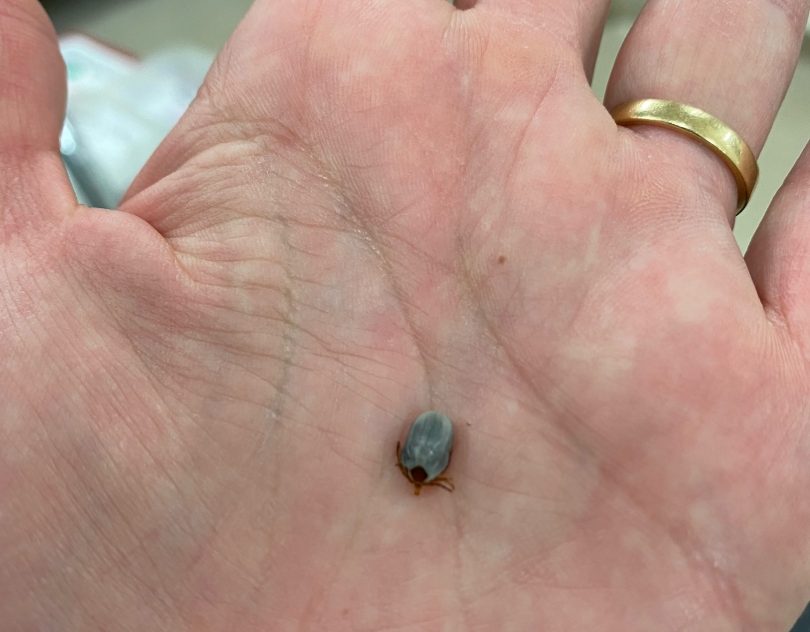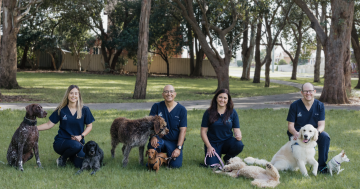
The tick season has started early on the NSW South Coast. Photo: Gungahlin Veterinary Hospital.
The tick season has started early on the NSW South Coast and it appears this season’s batch of toxic parasites may be “particularly potent” for our pets.
On Wednesday (28 August), the Moruya Veterinary Hospital said it had treated 11 cats or dogs for paralysis tick toxicity over the previous week and “unfortunately are anticipating more”. Sadly, one of these pets died.
“Please make sure your pet’s tick prevention is up to date,” the hospital said.
“There are multiple preventatives on the market that work really well and they really do save lives.”
Meanwhile, the Bega and Cobargo veterinary hospitals have seen at least 10 cats or dogs affected by ticks over the past two weeks. Three of these, tragically, died.
“We’ve had some come in so severely affected that they haven’t made it,” the hospital’s vet, Dr Nicky Patrickson, said on Wednesday (28 August).
“It’s a really tough situation for us, because it’s preventable in our eyes. So it’s really tough when we see it and we can’t fix it.”
Dr Patrickson described last year’s tick season as “extreme”. Over just a couple of days, her team saw about 12 cases.
“This season is looking to be the same. I would say it’s kicked off a lot earlier than expected,” she said.
“Normally, we see these sorts of numbers into spring.”
The Moruya Veterinary Hospital’s receptionist Jacqui Hay also said it was the beginning of the tick season.
“As soon as we get a few warm days at the end of winter, you start seeing the ticks,” she said.
“It happens every year, but they seem to be particularly potent this year. The animals that we are seeing are pretty badly affected.”
Ms Hay said owners might get lax with their tick prevention medication at the end of winter. She said her hospital was anticipating to treat more pets for tick toxicity as not all owners were up to date with their prevention.
She said prevention medication – like Nexgard and Bravecto – was cost-effective and worked well.

A paralysis tick, which can be deadly for your pet. Photo: Bega and Cobargo veterinary hospitals.
Dr Patrickson also thought pet owners tended to use less tick prevention medication through winter.
“I do think there’s an element of potency, but I also think there’s an element of the season and it has come quite quickly,” she said.
She said there were urban myths that ticks could only be found on the coast and only came out over summer.
However, her team was seeing cases involving the parasites in both coastal and inland areas across the Bega Valley, as well as throughout the year.
Dr Patrickson said the main action owners should take was to get their pet on prevention medication – whether that was tablets, spot-on liquid, injections or collars – and use it throughout the year.
She also urged owners to be vigilant and to check their pets for ticks once a day and if they found a tick, to remove it. If owners are concerned, they can take a photo of the tick and send it to their vet to see if they should be worried about it.
Ms Hay said if people thought their pet was affected by a tick, they should call a vet straight away.
“The sooner you get help, the better the outcome,” she said.
While tick anti-venom was in short supply in 2022 and 2023, Ms Hay said there were adequate supplies this year.
Original Article published by Albert McKnight on About Regional.


















